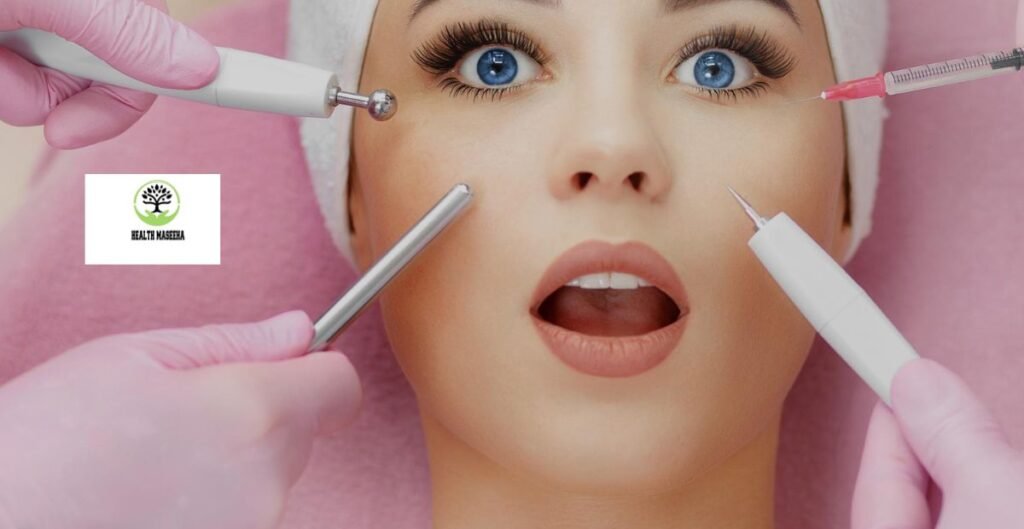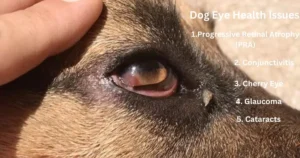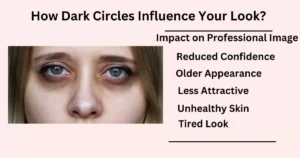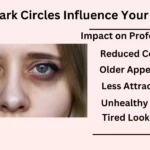Plastic surgery is commonly misunderstood as a means of enhancing one’s looks. It involves a range of surgical methods to change a person’s appearance. Beyond procedures for aesthetic improvements like facelifts and breast augmentations, plastic surgery for mental health plays a crucial role in addressing significant medical needs.
Will insurance cover plastic surgery for mental health? if one is feeling melancholic? There’s a belief among some that they would, though it’s rather nuanced. Insurance may consider covering it if a medical professional deems it necessary, but not if it’s for aesthetic purposes.
Does insurance help pay for plastic surgery for mental health if someone is feeling bad? Sometimes, yes. Insurance might cover it if a doctor says the surgery is needed to help them feel better. But if it’s to change how they look, insurance might not help. It’s like when you need medicine for a cold but not for a scraped knee. It all depends on what the doctor says.
Introduction to Plastic Surgery for Mental Health
Plastic surgery for mental health can change how individuals look, yet did you realize it can likewise affect how they feel inside? At the point when somebody could do without what they look like, it can cause them to regret themselves. Individuals can feel more joyful and more certain after having plastic surgery for mental health since it can help them have an improved outlook on what they look like.
However, it means quite a bit to realize that plastic surgery for mental health isn’t about looking great. It can assist with actual torment or having a miserable outlook on what you look like. Assuming somebody has large bosoms that hurt their back, medical procedures can encourage them to be more modest. Understanding that plastic medical procedures can assist with both what you look like and how you feel shows that it’s about something other than looking pretty.
Understanding Insurance Coverage of Plastic Surgery for Mental Health

Protection can pay for a few plastic medical procedures, yet it depends on what medical procedure you want and what protection plan you have. Assuming the medical procedure is vital for your well-being, such as fixing something after a mishap or fixing something you were brought into the world with, protection is bound to help pay for it. But if you want to look better, like getting a facelift or bigger breasts, surgery might not be covered by insurance.
At times, on the off chance that a specialist says you want it for your psychological well-being, such as getting new bosoms after having them eliminated in light of disease, protection could help pay for it. It’s essential to comprehend what your protection covers and what you could have to pay for yourself before choosing to have a plastic medical procedure.
Criteria for Insurance Coverage of Plastic Surgery for Mental Health
Insurance is akin to a trusted companion who comes to our aid in times of necessity. However, this companion adheres to a set of guidelines dictating its assistance. These guidelines are referred to as criteria. When discussing plastic surgery for mental health and insurance, criteria serve as a structured checklist. Insurance endeavors to ensure that any surgical intervention is essential rather than desirable.
To illustrate, if an individual’s nasal obstruction impedes breathing, it constitutes a genuine issue requiring resolution. Insurance may approve coverage in such instances due to the medical necessity. Conversely, if an individual seeks nasal alteration for cosmetic purposes, insurance may decline coverage. Thus, the criteria for aid insurance distinguish between genuine medical needs and mere desires.
Medical Necessity vs. Cosmetic Procedures

Okay, let’s talk about why someone might need surgery. Some surgeries are like superhero medicine for the body. They fix something that’s not working right. We call these surgeries “medically necessary.” Insurance likes these kinds of surgeries because they help people get better.
But then, some surgeries are more like changing how we look, like getting a new hairstyle. We call these “cosmetic procedures.” Insurance is not as friendly with these because they’re more about what we want than what we need. So, it’s like telling insurance, “Hey, my body needs help,” instead of saying, “I want to look different.” Understanding this helps us know if insurance will be our superhero friend or not.
Factors Influencing Insurance Decisions
Many factors can influence protection choices. One significant component is the type of medical procedure required.
- Assuming that the medical procedure is to fix a major issue that influences somebody’s well-being, protection is bound to help. But insurance might not cover it if it’s just to make someone look different.
- Something else that protection takes a gander at is the specialist’s proposal. Assuming the specialist says the medical procedure is vital, protection is bound to concur. Insurance agencies have rules about what they cover.
- Therefore, even if something appears to be crucial, insurance might reject it if it violates their guidelines.
- Understanding these variables can assist with knowing what’s in store while managing protection.
- Additionally, the cost of the surgery may also influence insurance decisions. A few medical procedures are over the top and expensive, and protection might not have any desire to pay for them.
- They could say no on the off chance that they think the medical procedure is too expensive. The individual’s medical history and current condition may also be relevant.
- If somebody has other medical conditions but assumes the medical procedure is hazardous, protection may be more cautious.
- They need to ensure the medical procedure is protected and essential before consenting to pay for it. Insurance companies use all these factors to decide whether to cover plastic surgery for mental health.
Challenges in Coverage of Plastic Surgery for Mental Health-Related

Getting protection to pay for plastic medical procedures as a result of emotional well-being reasons is truly intense.
- One major issue is persuading the insurance agency that the medical procedure is vital for emotional wellness.
- Insurance usually covers the costs of surgeries that are necessary for health reasons. Yet, some insurance agencies don’t see medical procedures connected with psychological well-being in the same way.
- They could think the medical procedure is simply to help somebody have an improved outlook on themselves, not because they truly need it.
- Regardless of whether protection consents to pay for the medical procedure, they could pay for part of it.
- This indicates that the individual might have to pay a lot of money for themselves. It very well may be difficult to come by a specialist who acknowledges protection for emotional wellness-related plastic medical procedures.
Not all specialists will work with insurance agencies for these medical procedures. This large number of issues makes it hard for individuals who need psychological wellness-related plastic medical procedures to find support from Protection.
Alternatives to Insurance Coverage
At times, protection doesn’t help pay for plastic medical procedures. Yet, sit back and relax; there are alternate ways of getting the medical procedure if it’s required. Some doctors are aware that not everyone can pay everything off at once. Thus, they offer installment plans. This means that you can make small monthly payments until you have paid for the surgery. It resembles purchasing a toy with pocket cash.
Another choice is to search for associations that assist with paying for medical procedures. These resemble extraordinary gatherings that need to ensure everybody can get the assistance they require. They could give cash to individuals who can’t bear the cost of the medical procedure alone. Therefore, there are still ways to get the surgery even if insurance says no.
Case Studies: Instances of Insurance Coverage
Allow me to recount to you a few genuine accounts of individuals who found support in their protection for plastic medical procedures. There was a young woman named Sarah. She needed surgery to fix her nose after an accident. Her insurance said yes because the surgery was necessary for her to breathe better. So, Sarah was happy because she could get the surgery without worrying about money.
Then, there was a boy named Jack. He wanted surgery to fix his ears because they stuck out. At first, Jack’s insurance said no because they thought it was for looks. However, Jack’s primary care physician made sense of the fact that the medical procedure would likewise assist him with resting more easily and thinking about himself. Later, Jack discovered he had congestive heart failure.
Case Studies: Plastic Surgery for Mental Health Insurance Denial

Let’s dive into a couple of stories where protection denied inclusion for plastic medical procedures. Meet Jimmy, a little fellow who attempted to inhale because of a veered-off septum. His PCP prescribed a medical procedure to address it, underscoring the clinical need. In any case, when Jimmy’s family presented a case to their protection supplier, they were met with disapproval.
We should think about Emily’s circumstances. Emily wanted a plastic medical procedure to reshape her nose, expecting it to support her certainty and work on her confidence. While her craving for the medical procedure was justifiable, protection thought of it as surface-level and denied inclusion.
Emily’s family was frustrated by the choice yet perceived that protection focuses on important methodologies over elective ones. Thus, Emily needed to set aside cash after some time to manage the cost of the medical procedure she wanted, highlighting the difficulties people face when protection denies inclusion for methodology considered insignificant.
FAQs
Does Blue Cross insurance cover plastic surgery?
Blue Cross insurance might cover plastic medical procedures, depending on the particular contract and the clinical needs of the system.
How does skin-removal surgery work?
Skin expulsion medical procedure includes eliminating overabundance of skin regularly after critical weight reduction or pregnancy to further develop body shape.
How can I tighten my saggy skin without surgery?
Non-careful choices to fix droopy skin incorporate activities, skincare items with retinol, and painless methodologies like radiofrequency treatment.
How long does it take to fully recover from skin removal surgery?
Recuperation from skin expulsion medical procedure shifts yet may take a little while to months, depending on the degree of the medical procedure and individual mending capacities.
Are there alternative treatments for mental health conditions besides plastic surgery?
Yes, alternative treatments for mental health conditions include therapy, medication, and holistic approaches such as mindfulness and lifestyle changes.
Conclusion
In conclusion, instances of insurance denial for plastic surgery for mental health are not uncommon. However, individuals need to explore alternative options and avenues for obtaining the desired procedures. While insurance coverage can ease financial burdens, it’s not the only pathway to accessing necessary or desired medical interventions.
By consulting with healthcare professionals, researching payment plans, and seeking support from organizations. Individuals can still pursue the surgeries they need or want, even in the face of insurance denial. What matters most is prioritizing one’s physical and mental well-being, regardless of insurance coverage limitations.












